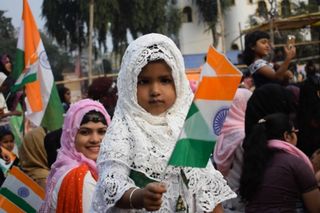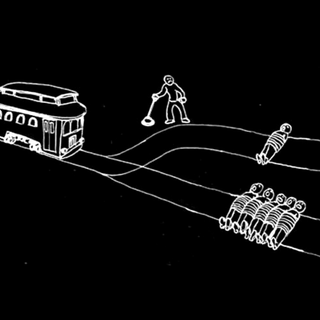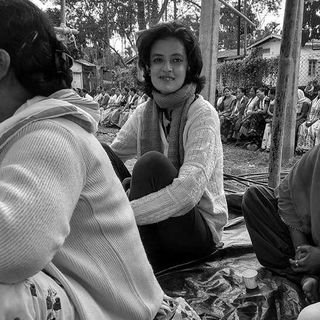
Anti‑NRC‑CAA Protests Have Left Women More Empowered, Confident at Home
“Now I will not follow my husband blindly, I will ask questions and do what I feel is right.”

“A single moment can spark a revolution, collective actions can transform laws, creative expression can change attitudes and an invention can alter the course of history,” states the UN Women website. “It’s these threads that weave together to propel the women’s movement — even in the face of obstacles.”
One such movement in India may be on the path to achieving all of the above — and women are at the heart of it: For the past two months, thousands of them, from multiple cities across India, have been leading the protests against the National Register of Citizens (NRC)-Citizenship Amendment Act (CAA), which combine to give the Centre the power to strip Muslims (but not people from other religions) of their Indian citizenship should they fail to provide documents to prove the same.
If they win this fight, it would mean a secure future for their children, families and themselves, the women say. But even if they don’t, there is an intangible victory they seemed to have already won – that of feeling empowered, in their everyday lives. And this could be big considering a majority of these women come from homes that adhere to strict gender norms.
“Now I will not follow my husband blindly, I will ask questions and do what I feel is right,” said Salma Abbas, a 42-year-old homemaker from Kolkata who has been at the protests at Park Circus Maidan since it began on January 7, 2020. “We have believed in the men for so long when they haven’t even been able to provide us with something as basic as safety.”
Related on The Swaddle:
Across cities, this feeling is common. “Men wanted us to be at home, but it is their failure that has forced us out. Now we know that when women get together, nobody can stop us from achieving what we want,” said protestor Ameena Shaikh, a 37-year-old homemaker from Gaya, in Bihar. “Jab auratein zidd pe aati hai, toh poori hukumat hila sakti hai,” she added. When women become adamant, they can even overthrow the government.
It is this conviction they’ll be taking with them back home. The introduction of the NRC-CAA, the women say, has ended up making them more aware of their rights.
Take documentation for instance. In an article for Foreign Policy, Nilanjana Bhowmick writes, “In India, a woman’s life is defined not by papers and documents but by dispossessions.” Under the NRC, people will need to show documents proving ownership of land, lineage, and their education. “Most women in India do not have their names on those kinds of documents,” Bhowmick explains.
A gender activist and secretary of the All India Progressive Women’s Association, Kavita Krishnan, told Bhowmick, “Women in this country have the vaguest ideas about when they were born or where they were born. And documents are, of course, totally non-existent.”
Women sitting in these protests haverealized their vulnerability for lack of documentation.
“The time has passed to get documents in my name now,” said Sumaira Khan, a 49-year-old homemaker protesting in Patna, in Bihar. “But at least I can ensure that my daughters’ are in place and whether my husband has got them done. If he hasn’t, I’ll run from pillar to post to get them made.”
Related on The Swaddle:
For Women at Protests, Challenging NRC‑CAA Starts With Defying Sexism at Home
This need for documentation has also made women — especially Muslim women, who make up the majority of women protestors — realize the importance of education. An activist and former Jawaharlal Nehru University student Umar Khalid writes for The Print that the illiteracy rate among Muslims is at 42.7%, the highest of all Indian minorities. Muslims also have the lowest rate of participation in higher education, he adds.
“I’ve studied only till the third grade, if I had studied more, I’d be more aware of what I’m entitled to and what my rights are,” said protestor Rafiya Naushad, a 42-year-old homemaker from Gaya, in Bihar. “Women are constantly made to feel that they belong at home, but seeing so many women out, I’m certain that, had we studied, we’d be doing so much more with our lives.”
Naushad said the protests have enabled her to speak up at home, not only for herself but for her daughter, too. “I’m going to oppose when my husband wants to marry her off at 18. She will study, and she will work first. And I will also ensure that nobody stops her from being financially independent even after she’s married,” Naushad said.
For others at the protests, their newfound political engagement has yielded more confidence in their own judgment.
“Until today, we were also following our husbands blindly and voting for the people he asked us to vote for. See where it landed us. Now we are going to ask why should we vote for that person,” said Abbas. “And when our daughters will get educated, they won’t even need to ask. They’ll know themselves who to vote for.”
Time will tell how much of this empowerment bleeds into women’s everyday lives. But one thing is certain: the protests have put cracks into the foundation of patriarchy within individual homes, which will slowly, but surely, create a new normal.
“Feminist movements stand for something that right-wing authoritarians fear: the end of patriarchy,” Yifat Susskind writes for the Los Angeles Times. “Women are rewriting the rules that allocate power to some and suppress others based on restrictive gender norms. They are creating inclusive communities where people of all genders and identities can live freely, assured of their rights. That’s more than a beautiful dream. It’s a blueprint for a successful uprising.”
Anubhuti Matta is an associate editor with The Swaddle. When not at work, she's busy pursuing kathak, reading books on and by women in the Middle East or making dresses out of Indian prints.
Related


Would You Save 1 Life or 5? Worldwide, Cultures Differ on the Trolley Dilemma
